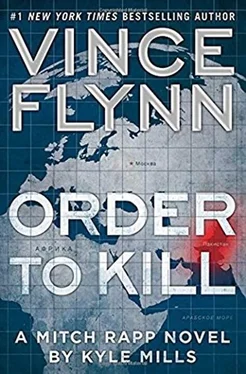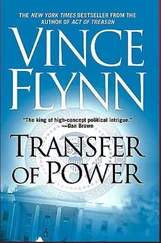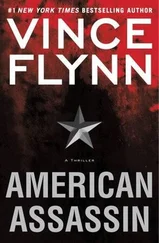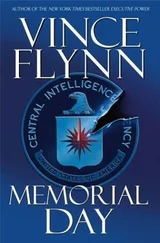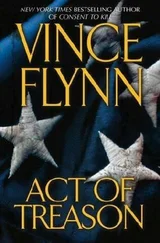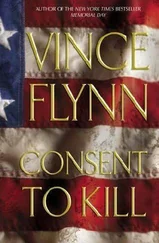“Yeah, but Craig’s betting that it wasn’t made in Pakistan.”
“That’s even less believable, then. I’d be skeptical if this was al Qaeda or ISIS. But al Badr is-”
“The minor leagues,” Rapp said, finishing her thought.
“Exactly. The fact that they were even going after a nuke was surprising. Now you’re telling me they figured out how to not only remove the fissile material container but manufacture a convincing replacement? That strains credulity to the breaking point.”
“Al Badr or not, someone’s got the critical piece for building a nuke, and I’m guessing it’s not one of our friends.”
“Agreed. Have Craig reassemble the weapon so we can get it back to Pakistan. The situation’s heating up and we can’t afford to keep it any longer.”
“Shirani’s going to blame us,” Rapp pointed out. “He’ll say we took the fuel and use the accusation to pump up the religious fanatics. It could be enough for him to take over.”
“No question. But I’m not sure what we can do about it at this point. We need to focus on making sure no more fissile material is removed from the Pakistani arsenal.”
“Mas and I can jump a plane back to Pakistan, but this makes our job a hell of a lot harder. We’ve been looking for people moving against entire nukes. They’re big, heavy, and visible. If all they need is a wrench and a few minutes alone, we’ve got an entirely different game. Now it’s just a matter of slipping some low-level army officer a few grand or sneaking into the back of a train or truck while it’s on the move.”
She didn’t respond.
“Irene?”
“I need you to come to Maryland before you leave, Mitch.”
He tensed. “Why?”
“The surgeons in Afghanistan missed some perforations in Scott’s small intestine. Our people have repaired them but Scott has a serious infection.”
“Bottom line?”
“They’re doing everything they can, Mitch-”
“Bottom line, Irene!” Rapp said, the volume of his voice rising. Some of the scientists working below turned and shot him a nervous glance.
“They think he’ll be gone before sunrise.”
Rapp disconnected the call and turned back to Craig Bailer.
“Everything okay, Mitch?”
“You’re done. Get that thing put back together.”
“Can I shave a little off that canister? No more than a few thousandths of an inch. With some time to analyze it, I might be able to tell you where it came from.”
“As long as you can do it in the next few hours.”
“Not a problem.”
“Craig, I need a favor.”
“Sure. What?”
“My plane’s gone and I need to get to Bethesda. Fast.”
Bailer nodded thoughtfully. “Yeah. I think I can help you out.”
NEAR DOMINICAL
COSTA RICA
GRISHA Azarov eased his pickup along the badly rutted dirt road, keeping his speed under thirty kilometers per hour. Not that he couldn’t go faster. He’d paid almost two hundred thousand U.S. dollars to have the vehicle custom built. It looked like a thousand others roaming Central America, but beneath the stock Toyota body was a 600-horsepower offroad racing machine. Based on his tests, he could maintain almost two hundred kilometers an hour on roads that most people crawled along at the pace of a horse-drawn cart.
He was relieved to be out of Pakistan, away from the CIA men operating there, and outside Maxim Krupin’s intelligence network. It was a beautiful day in Costa Rica. Humid, but unseasonably cool. Skies were clear and the sound of the jungle around him calmed his mind. In many ways, this was home. Or at least the closest thing to a home he would likely ever have.
Azarov turned onto an even rougher road and began climbing, scanning the dense trees on either side but keeping his window open and his left arm hanging out. The glass wasn’t bulletproof and even if it had been, anyone Krupin sent to punish him for his failure would use a weapon sufficient to defeat any armoring.
Azarov had given his situation a great deal of thought on the flight to Panama and the long overland drive that followed. He was reasonably confident that Krupin wouldn’t attempt to have him killed in the near term. Not certain enough that he didn’t have a loaded pistol resting in his lap, though.
At thirty-five, he was probably at the peak of his abilities and on the verge of his inevitable decline. He assumed that Krupin recognized this and would be looking for a replacement. Perhaps he’d even found one and was now in the lengthy training and grooming process that Azarov himself had endured. Would this new recruit one day be sent for him? Would that be the boy’s test to prove his worth?
Perhaps. But for now, he suspected the benefits of his continued existence outweighed the drawbacks. Still, he had never known Krupin to completely ignore a failure by one of his people. The Russian president felt it set a bad example.
Azarov came to the top of a rise and reached for his cell phone, knowing that he would have a signal until he started dropping down the other side. He dialed and tossed the phone on the dash.
“Hola, Grisha.”
“Hola, Juan. Are you well?”
“My back went out again last week,” the man responded in Spanish.
Azarov smiled. Juan Fernandez had been running a fruit stand outside the small town of Dominical since he was a child. He knew everyone in the area and was the clearinghouse for local gossip. If anyone suspicious was hanging around the area or asking questions, Juan would know.
For the very reasonable price of three million colones per year, they had an ongoing agreement that Azarov would call him when he was approaching the area. If Juan’s answer to the inquiry about his health was bueno, then there was a problem. Conversely, if it was an honest recitation of the Costa Rican’s many real and imagined infirmities, he had noticed nothing unusual.
“Sorry to hear it. Have you gone to see the doctor?”
“Doctors,” he spat. “What do they know? They tell me I’m healthy. But I’m eighty years old. I ask you: How can I be healthy at my age?”
“Clean living,” Azarov suggested. “Does Olga need me to pick anything up?”
“No, she was in town shopping just yesterday. But I hear a rumor that there’s a problem with your refrigerator.”
Azarov was feeling better and better about his situation. If only Russian intelligence had people as thorough as Juan Fernandez.
“Thank you, my friend. I’ll see you tomorrow. We’ll have a drink.”
He disconnected the call and dialed Olga, the woman he lived with. She didn’t pick up, but that wasn’t unusual. She wasn’t terribly reliable and had been angry at him when he last left. If Olga had any gift beyond her startling beauty, it was her ability to hold a grudge.
He accelerated to fifty kilometers per hour and passed by a partially hidden right turn. After a few hundred meters, he saw another, but decided at the last moment to pass it by, too. Finally, he drifted onto the third.
The locals had thought he was crazy when he’d had five separate roads built to his mountaintop home. The land itself had cost less than half a million U.S. dollars. Another million had built the house. The kilometers-long driveways, though, had cost more than the land and buildings combined.
They were yet another insurance policy. Anyone hired to come after him would be hesitant to try to take him at his house-the home field advantage was difficult to overcome. Much better to do it during his approach. The five different routes created a situation where one would need a fairly large team to cover every possibility. Just the kind of team that Juan Fernandez would be likely to notice.
Читать дальше
